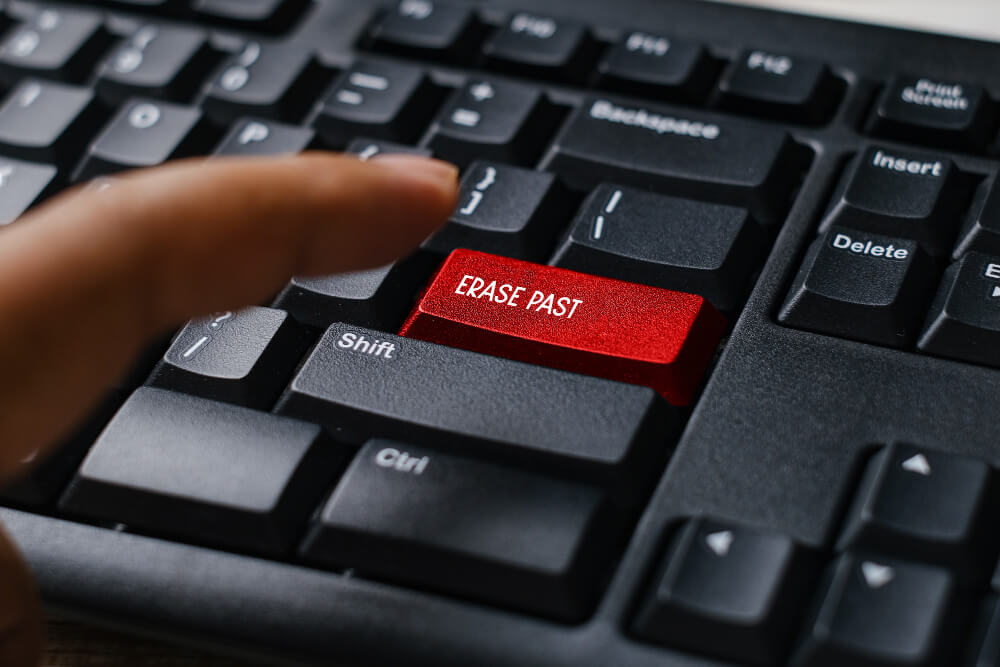August 21, 2021
either/view ⚖️
Delete your past
To: either/view subscribers
KNOW YOUR RIGHTS – EDITION 4
Right to be forgotten

Good morning. Aristotle called us humans ‘social animals.’ It’s true, we love living the social life. Right? Well, even if we don’t get ecstatic about the everyday chit-chats, we are somehow part of it. Think of how the internet has forced us to share our lives online.
Our names, photos, videos and other private information are getting digitally recorded. A single Google search can pull up so many details of our private lives. Now, that’s not really problematic in most cases. For example, if you have won an award at a huge national fest, it’s likely that the digital media has your name and photo featured on their pages. And that’s a matter of pride and happiness for you.
But say, there’s a particularly upsetting video of yours that someone uploaded on the internet. Anyone can look it up and share it to a wider audience. This would damage your reputation, hurt your feelings and cause psychological harm to you or your family. In such cases, would you not want to delete that video forever from the face of the internet? You would wish to be left alone from the wrath of the internet. That’s where the ‘right to be forgotten’ steps in.
The right to be forgotten is your right to remove private information that is available in public domains like the internet, search engines, databases, websites etc. Like we discussed, it could be harsh information that someone uploaded about you, sometimes without your permission. It’s also possible that some details were legally published but are out of context presently.
Let’s look at the case of an American citizen hailing from India. In 2009, this person was listed in a narcotics case during his visit to India. Two years later, the court set him free of all charges. He thought it was the end of his bad luck and returned home. But he wasn’t spared from the sharp memory of the internet. The case kept popping up whenever any recruiter did a background check on him. Though the information was irrelevant to the recruiter because he was actually not guilty, his career prospects were deeply damaged due to the online publications. So, he sought the help of the courts to delink his name from the case. The Delhi HC upheld his right to be forgotten and directed Google and Indian Kanoon to take down the digital judgement.
Yes, that’s a victorious judgement. This case reassures that you too can get your private information removed from the internet to protect yourselves. But here’s the catch – the right to be forgotten is not a specified law as such. However, it is mentioned in the Personal Data Protection Bill 2019.
Many Indian courts have also recognized this right as inherently present in the right to privacy. In 2017, the Supreme Court held that each of us have the right to control our existence on the internet. They said this was part of the right to exercise control over our personal data.
But remember, not all such legal data can be removed from the internet. The data you are requesting to be removed should no longer be necessary for any legitimate purpose. Even then, it should not be a crucial piece of information that, if erased from the internet, could violate the right to information of others or put at risk the transparency of judicial records.
So yes, at first glance, it might seem simple. But practising the right to be forgotten involves a complicated process. That’s probably why not many people seek this explicitly. However, in recent times, businessmen and celebrities have been reaching the courts to delete their private information on the internet. Some of them have won their cases and got back their privacy and peace. While others have been denied their opportunity because the publicized information does not fall under the specified conditions.
Again, this right does not mean you can pull down your entire search history from the internet. But if you firmly believe that a particular information serves as a blackmark on your profile/image, then you must legally handle the situation. Know your rights and use them without hesitation!

